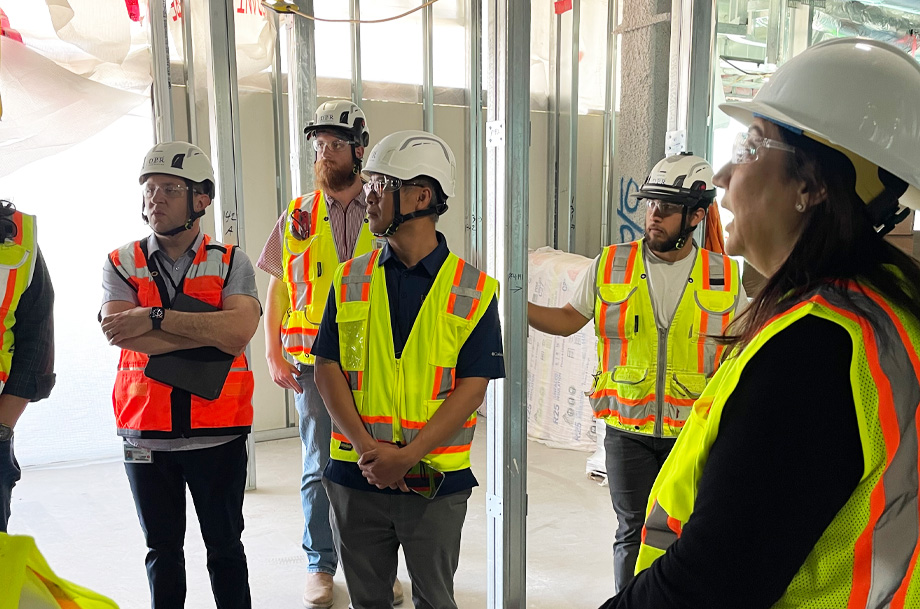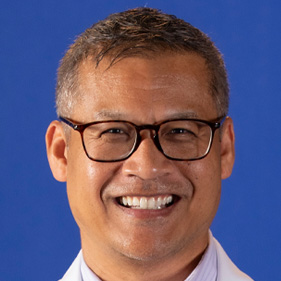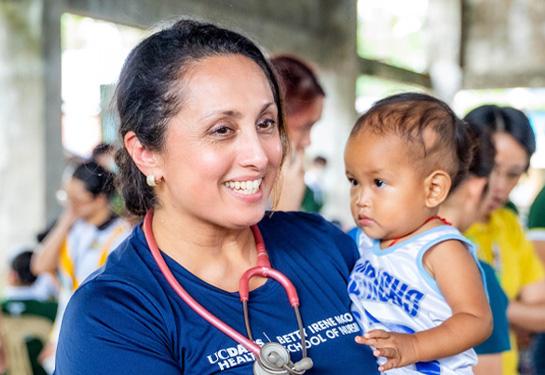UC Davis nursing school announces accreditation of Doctor of Nursing Practice – Nurse Anesthesia program
Hybrid program is the first in the UC system, sixth in the state
The Betty Irene Moore School of Nursing at UC Davis has earned accreditation for its Doctor of Nursing Practice – Nurse Anesthesia (DNP-NA) Degree Program by the Council on Accreditation of Nurse Anesthesia Educational Programs (COA).
This significant milestone marks the first DNP-NA program within the University of California system and only the sixth of its kind in California. The program is set to welcome its inaugural cohort of students in June.
The DNP-NA program is an integrated, full-time, three-year curriculum designed to equip experienced critical care registered nurses (RNs) with the knowledge and hands-on training required to become Certified Registered Nurse Anesthetists (CRNAs). The program blends rigorous online coursework with in-person simulation training and extensive clinical experience, ensuring students receive a comprehensive and immersive education.
“Earning COA accreditation validates the quality of our curriculum and faculty and highlights the caliber of the dedicated and supportive staff here at the School of Nursing,” said Program Director Jakkarin “Jake” Sareerak. “As a new program, we prioritized hiring the highest caliber of CRNA faculty, many of whom have served in program administrator roles and bring extensive experience in both education and clinical practice.”

CRNA programs have transitioned from the master’s degree to the DNP level to better prepare clinicians for the increased complexity of patient care and to equip them with advanced leadership and quality improvement skills. This change, supported by accrediting bodies, ensures CRNAs are ready to meet modern health care challenges and lead interdisciplinary teams effectively. Applicant must hold either a Bachelor’s Degree in Nursing Science (BSN) or an equivalent major or a bachelor’s degree in another specialty in addition to a Master’s of Science in Nursing (MSN) or an equivalent graduate degree.
Graduates of the DNP-NA program will be fully prepared to take on leadership roles in anesthesia care, Sareerak said, which addresses critical gaps in health care access across California.
Addressing the shortage
The demand for anesthesia providers continues to outpace supply nationwide. The American Association of Nurse Anesthesiology (AANA) reports that by 2033, the anesthesiology workforce may experience a shortage of approximately 12,500 providers. That is further exacerbated in California’s rural and underserved areas.
With 40 million residents, the state has a growing need for anesthesia services, especially as its aging population requires more procedures. In addition, non-operating-room anesthesia sites are increasing due to technological advancements, which require more anesthesia care beyond traditional surgical settings.
By expanding nurse anesthesia education, the School of Nursing is actively addressing this workforce challenge and strengthening the future of anesthesia care in California.
“With the growing shortage of anesthesiologists and CRNAs across the nation, this program is poised to help bridge the gap by preparing highly skilled nurse anesthetists to serve diverse patient populations,” said Dean Stephen Cavanagh.

Expansion supports learning and patient care
UC Davis Health is also meeting this need head-on by partnering with the School of Nursing through its expansion efforts. A key milestone in this expansion is the integration of the 48X Complex as part of the program's primary clinical training site.
Expected to open for patients in July, the four-story, 268,228 square foot complex will feature 14 operating rooms. The large facility is ideal for presenting learning opportunities for CRNA students and addressing the shortage of ambulatory operating room capacity at the main hospital.
“This initiative will provide invaluable hands-on experience for future CRNAs while ensuring a steady pipeline of highly trained anesthesia providers within UC Davis Health. We hope to retain many of the graduates which will help us reinforce our commitment to delivering safe, high-quality anesthesia services and shaping the future of health care excellence,” said Kimberly Beres, the chief nurse anesthetist for the health system.
The DNP-NA program is the latest offering from the top 25, 15-year-old nursing school. The school already offers a popular DNP-Family Nurse Practitioner program which is helping to fulfill California’s shortage of primary care providers, along with master’s degrees in nursing, physician assistant studies, a Doctor of Philosophy program and a psychiatric mental health nurse practitioner post-graduate certificate program.
What truly sets us apart, however, is our commitment to creating a pipeline of highly competent anesthesia providers who will serve underserved communities, reduce health disparities and emerge as future leaders in the profession.—Jakkarin “Jake” Sareerak, DNP-Nurse Anesthesia program director
A comprehensive and immersive learning experience
The DNP-NA program’s curriculum is designed to provide an unparalleled educational experience through:
- State-of-the-art simulation training: Students will engage in high-fidelity simulation scenarios that replicate real-life clinical situations, ensuring they develop critical decision-making and technical skills in a controlled environment.
- Diverse clinical rotations: By partnering with other UC campuses, students will complete clinical rotations across a large academic health system, gaining exposure to a variety of anesthesia cases in different health care settings and varied patient populations.
- Mentorship and professional development: The program offers a robust mentorship initiative that pairs students with experienced CRNAs who work at places other than UC Davis Health. Additionally, faculty members provide guidance and professional support throughout the three-year program.
- Commitment to diversity and inclusion: The School of Nursing is dedicated to fostering an inclusive learning environment that values diverse perspectives and backgrounds, enriching the educational experience for all students and ensuring culturally competent anesthesia providers enter the workforce.
“What truly sets us apart, however, is our commitment to creating a pipeline of highly competent anesthesia providers who will serve underserved communities, reduce health disparities and emerge as future leaders in the profession,” Sareerak added.





